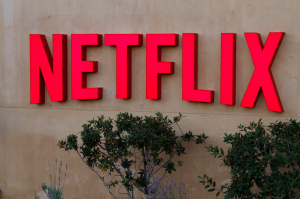
After more than 40 years of operation, DTVE is closing its doors and our website will no longer be updated daily. Thank you for all of your support.
Netflix and Relativity in war of words
 Streaming service Netflix has questioned the management set-up of troubled US studio Relativity Media, whose founder has responded with fury.
Streaming service Netflix has questioned the management set-up of troubled US studio Relativity Media, whose founder has responded with fury.
With Relativity still in bankruptcy legal proceedings, Netflix made a court filing this week that claimed there was “considerable confusion” over who would run the studio once it had refinanced.
As such, Netflix wants a US bankruptcy court to end a film distribution contract the pair currently has, claiming Relativity did not supply the required number of movies last year.
Relativity earlier this month revealed it was acquiring Trigger Street Productions, putting actor Kevin Spacey and his production partner, Dana Burnetti, atop the new-look Relativity Studios as chairman and president, respectively.
Netflix said subsequent statements that Relativity founder and CEO Ryan Kavanaugh and hedge-fund tycoon Joseph Nicholas would be co-managers of the reorganised studio raised questions over who would run it day-to-day.
This could all hinder Relativity’s ability to honour a legacy deal with Netflix struck six years ago to deliver films to the on-demand service through to 2018, it was claimed.
Relativity, whose television arm has already gone solo under Tom Forman and Andrew Marcus, remains in Chapter 11 bankruptcy protection. Various conflicting reports and multiple interested parties suggest the financing picture is still developing, though Relativity said upon the announcement of the Trigger Street acquisition that it had found exit financing and would soon return to a new releasing schedule.
However, Kavanaugh claimed Netflix had made the filing to renegotiate the film supply agreement, and was becoming “cocky and too big for their own britches” in an interview with The Hollywood Reporter.
“We made our deal with them in 2010 when not only would no other studio work with them, but there were public and known blacklists prohibiting studios and television companies from working with them,” he said.
“For the first few years after we made our deal, we were their knight in shining armour. Just look at Netflix even today. It’s mostly Relativity movies.”
Kavanaugh added Netflix had not pointed to any particularly breaches of contract because “there are none”, and that he expected the judge would” see right through their shallow and completely frivolous filing”.


